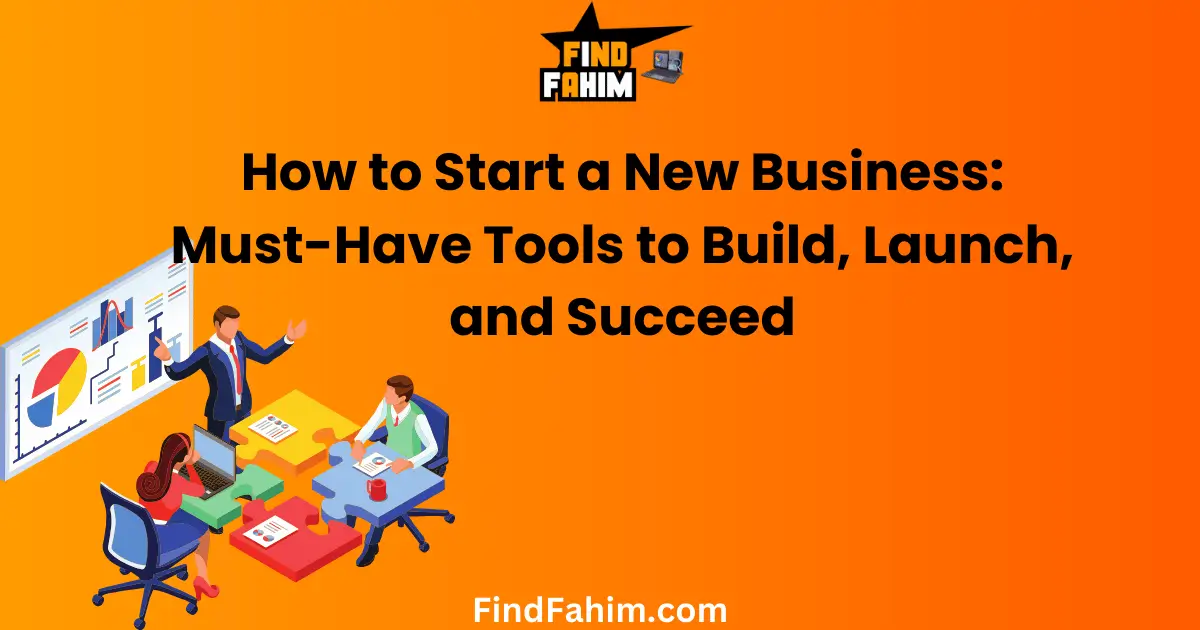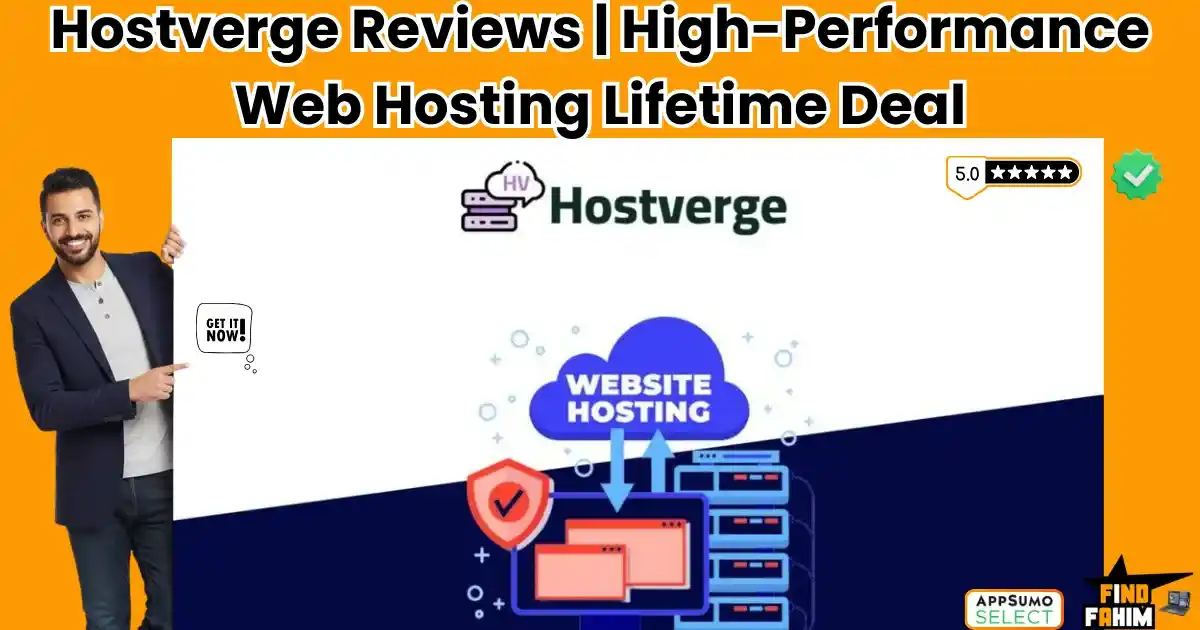Starting a business is exciting, but let’s face it—launching and scaling a new venture is no easy feat. Did you know that 90% of startups rely on at least one automation tool to streamline operations and grow faster? Imagine waking up with everything in your business running smoothly—from marketing campaigns to customer engagement—all thanks to the right tools.
The reality is, that without these tools, you risk wasting time, resources, and energy on tasks that could be automated. But with the right strategies and tools in your corner, you can build a solid foundation for success.
This guide will walk you through the must-have tools every entrepreneur needs, from planning and marketing to customer management and branding. Whether you’re setting up your first e-commerce store or managing a growing team, the right tools will help you stay organized, increase productivity, and boost sales effortlessly. Let’s dive in!
Table of Contents
ToggleWhy Do You Need the Right Tools for Business Success?
The right tools can mean the difference between a thriving business and one that struggles to stay afloat. Let’s explore why.
The Cost of Inefficiency in Startups
Running a business without effective tools can lead to poor time management, missed opportunities, and employee burnout. According to research, inefficiencies cost small businesses up to 30% of their revenue. By investing in reliable tools early on, you can streamline your operations and focus on growth rather than fixing mistakes.
Time-Saving Benefits of Automation
Automation tools handle repetitive tasks like sending follow-up emails or tracking expenses, allowing you to focus on strategic decisions. For example, using a marketing automation platform can save you 10+ hours per week, freeing up time for creative or high-impact tasks.
Business Planning Tools for Entrepreneurs
Starting a business begins with a dream, but turning that dream into a reality requires strategic planning. The right tools can help you map out your ideas, streamline your processes, and set a solid foundation for success. Here are some of the best tools to help you create a business plan and bring your vision to life.
LivePlan – Craft a Professional Business Plan
Overview: LivePlan is designed to simplify the complex process of business planning. With its intuitive step-by-step interface, you can outline your business objectives, craft detailed financial forecasts, and develop comprehensive growth strategies. Whether you’re pitching to investors or simply building clarity around your ideas, LivePlan ensures a professional touch.
Key Features:
- Step-by-step guidance for creating business plans.
- Customizable templates for financial projections and growth strategies.
- Real-time performance tracking against goals.
- Collaboration tools for team input.
Best For: Entrepreneurs who need a polished and investor-ready business plan or clarity in their roadmap. It’s ideal for startups aiming to secure funding or present their business professionally.
Pricing: Plans start at $20 per month, but savvy entrepreneurs can sometimes snag lifetime deals during promotions. Keep an eye out for deals on platforms like AppSumo.
Notion – A Versatile Planning Workspace
Overview: Notion is much more than just a business planning tool. It’s an all-in-one workspace that allows entrepreneurs to organize their ideas, create workflows, and manage tasks seamlessly. With pre-built templates for business planning, Notion makes structuring your startup easier and more adaptable.
Key Features:
- Customizable templates for business and project planning.
- Drag-and-drop functionality for easy organization.
- Centralized workspace for notes, tasks, and collaboration.
- Integration with other tools like Slack and Google Drive.
Best For: Creative entrepreneurs, solopreneurs, or teams needing flexibility and innovation in their planning process. It’s especially useful for those who value organization and streamlined collaboration.
AppSumo Deal: Notion occasionally pops up on AppSumo with significant discounts, making it an even more attractive choice for budget-conscious startups.
AppSumo – Your Deal Hub for Startup Tools (Recommended)
Overview: If you’re looking for cost-effective solutions for your business planning and beyond, AppSumo is a treasure trove. This platform specializes in providing startups and small businesses access to powerful tools at unbeatable prices. From tools like LivePlan to workflow solutions like Notion, you can find lifetime deals at up to 90% off.
Key Features:
- Marketplace for lifetime deals on premium tools.
- Frequent promotions for planning, marketing, and operational tools.
- Access to early-stage software that helps businesses innovate.
Best For: Budget-conscious entrepreneurs who want to maximize their resources without compromising on quality. AppSumo’s deals are particularly helpful for startups operating on a tight budget but looking for high-value tools.
Why These Tools Matter for Entrepreneurs
Starting a business involves a lot of moving parts, from organizing ideas to convincing investors. Tools like LivePlan simplify the complexities of creating a business plan, while Notion provides the flexibility to adjust your workflows as you grow. Meanwhile, AppSumo ensures you can access these tools without breaking the bank.
These tools not only save time but also provide clarity, structure, and confidence. With the right planning tools in place, you can focus more on executing your ideas and less on the logistics of getting started.
By leveraging these resources, entrepreneurs can go from idea to execution seamlessly. The journey might still have challenges, but with tools like these, you’ll be better equipped to navigate the path to success.
Best E-Commerce Platforms to Start Selling
Whether you’re an artisan selling handmade crafts, a content creator offering digital courses, or an entrepreneur launching a unique product line, an e-commerce platform is your gateway to the online marketplace. The right platform simplifies the process of building an online store, showcasing products, and managing transactions, helping you focus on growing your business. Here are two of the best e-commerce platforms to consider:
Shopify – User-Friendly Store Setup
Overview: Shopify is one of the most popular e-commerce platforms, and for good reason. Known for its simplicity and powerful features, Shopify makes setting up an online store straightforward, even for beginners with zero technical knowledge. Its drag-and-drop builder allows you to design a store that matches your brand identity without writing a single line of code. You can choose from a wide range of customizable themes and integrate multiple payment options seamlessly.
Key Features:
- Drag-and-Drop Builder: No coding skills? No problem! Create a professional-looking store in minutes.
- Customizable Themes: Over 70 free and paid themes to match your brand’s aesthetic.
- Built-In Payment Gateway: Shopify Payments eliminates the need for third-party processors.
- App Integrations: Over 8,000 apps to enhance your store, from marketing to inventory management.
- Mobile-Friendly Design: Your store will look stunning on both desktops and mobile devices.
Why Choose Shopify: Shopify is perfect for entrepreneurs who want to hit the ground running. Whether you’re launching a small business or scaling an existing one, Shopify’s tools make it easy to sell online without any technical barriers.
Best For:
- Beginners with no technical expertise.
- Businesses looking for a quick, professional launch.
- Entrepreneurs who want a reliable, scalable solution.
Affiliate Opportunity: If you’re exploring affiliate marketing, Shopify offers a lucrative program. As a partner.
Success Stories: Thousands of successful businesses started with Shopify. From small handmade stores to multi-million-dollar brands, Shopify continues to empower entrepreneurs worldwide.
BigCommerce – Versatile E-Commerce Features
Overview: BigCommerce is a feature-rich e-commerce platform designed for businesses looking to grow. With its robust capabilities, you can sell across multiple channels, leverage advanced analytics, and offer a seamless shopping experience to your customers. Its scalable nature makes it an excellent choice for businesses planning for future expansion.
Key Features:
- Multi-Channel Selling: List your products on Amazon, eBay, and social media platforms like Facebook and Instagram.
- Advanced Analytics: Gain deep insights into customer behavior and sales trends to refine your strategies.
- Unlimited Products and Storage: BigCommerce doesn’t cap your growth. Add as many products as you want without worrying about storage limits.
- SEO Tools: Built-in features like optimized URLs and automatic sitemaps help improve your store’s search rankings.
- Secure Checkout: With PCI compliance and HTTPS security, BigCommerce ensures safe transactions for your customers.
Why Choose BigCommerce: This platform is ideal for small to medium-sized businesses with ambitious growth plans. Its robust feature set and scalability ensure you won’t outgrow the platform, even as your business expands.
Best For:
- Businesses with plans to scale rapidly.
- Entrepreneurs who need multi-channel selling capabilities.
- Store owners looking for advanced analytics and SEO tools.
Affiliate Opportunity: BigCommerce also offers an affiliate program where you can earn commissions by referring businesses to the platform.
Success Stories: Many successful brands have relied on BigCommerce to scale their operations and improve their online presence, from small boutique stores to global retailers.
Why Choose These Platforms?
Both Shopify and BigCommerce cater to different types of entrepreneurs but share a common goal: helping you succeed online. Shopify excels in ease of use and simplicity, making it ideal for beginners, while BigCommerce stands out with its robust features and scalability, perfect for growing businesses.
By choosing the right platform, you’re not just setting up an online store; you’re creating a foundation for success. Both platforms come with exceptional support, integrations, and tools to help you market, sell, and grow your business effectively.
Marketing Automation Platforms to Drive Sales
Marketing tools are essential for growing your business efficiently. They help you attract, engage, and convert leads into loyal customers—all without requiring manual effort for every step of the process. Here are three top marketing automation platforms to consider:
ClickFunnels – High-Converting Sales Funnels
Overview: ClickFunnels is designed to help entrepreneurs create and optimize sales funnels effortlessly. From landing pages to checkout forms, the platform provides pre-designed templates focused on maximizing conversions. With ClickFunnels, you can guide your customers through every stage of the buying process with ease.
Best For:
- Coaches, consultants, and course creators looking to increase their online sales.
Key Benefits:
- Drag-and-drop funnel builder for easy customization.
- Pre-built templates designed for high conversions.
- Tools for upselling, cross-selling, and recurring sales.
Affiliate Opportunity: ClickFunnels offers a highly rewarding affiliate program where you can earn a good amount per sale.
ActiveCampaign – Email Marketing and Automation
Overview: ActiveCampaign is a powerful email marketing platform that combines automation workflows, CRM integration, and in-depth analytics. It’s perfect for businesses that want to build lasting relationships with their leads and customers.
Best For:
- Businesses of all sizes that want to streamline email campaigns and nurture leads effectively.
Key Benefits:
- Automation workflows to save time and improve efficiency.
- Built-in CRM to manage customer data.
- Detailed analytics to monitor campaign performance.
Pricing: ActiveCampaign’s plans start at $29/month, making it accessible to startups and small businesses. Occasionally, individual deals can be found to reduce costs.
Markopolo AI – Social Media Ad Automation
Overview: Markopolo AI simplifies the process of running social media ads by automating tasks like audience targeting and content creation. It’s a great solution for small businesses that lack the time or expertise to manage ads manually.
Best For:
- Small businesses and startups looking to save time and maximize ad performance.
Key Benefits:
- AI-driven tools for audience targeting and content creation.
- User-friendly interface that streamlines ad management.
- Time-saving automation for social media advertising.
AppSumo Deal: Markopolo AI was previously available on AppSumo at an exclusive lifetime price, making it an affordable option for early adopters.
SEO and Content Marketing Platforms
Search Engine Optimization (SEO) and content marketing are vital for businesses aiming to grow online. With the right tools, you can improve your website’s visibility, attract organic traffic, and stay ahead of the competition. Let’s explore two top SEO and content marketing platforms that can help elevate your digital strategy:
Ahrefs – Powerful SEO Analytics
Overview:
Ahrefs is one of the most comprehensive SEO tools available, offering businesses an all-in-one solution to enhance their search engine presence. With features like Site Explorer, you can analyze competitors’ backlinks and uncover their top-performing pages. The Content Explorer helps you find trending topics and high-performing content ideas in your industry. Whether you’re a small business or an established brand, Ahrefs empowers you to dominate search rankings.
Best For:
- Businesses focused on organic growth.
- Digital marketers looking for data-driven strategies to boost their search rankings.
Key Features:
- Backlink Analysis: Discover quality links pointing to your competitors and replicate their success.
- Keyword Explorer: Identify profitable keywords to improve your content strategy.
- Rank Tracker: Monitor your website’s ranking over time and adjust your strategy accordingly.
Real-World Use:
A local bakery in Chicago used Ahrefs to rank for the keyword “best sourdough in Chicago.” By identifying low-competition keywords and optimizing their website, they saw a 200% increase in online orders within six months.
Pricing:
Ahrefs offers plans starting at $99/month. While it’s a premium tool, you might occasionally find trial offers or discounts on deal platforms.
SEMrush – Comprehensive Keyword Research
Overview:
SEMrush is an all-in-one SEO tool that combines keyword research, site audits, and competitive analysis into a user-friendly platform. Its extensive database of keywords and detailed analytics help you uncover untapped opportunities for driving organic traffic. For businesses and content creators aiming for long-term SEO growth, SEMrush is a must-have.
Best For:
- Content creators need keyword inspiration.
- Small business owners looking to improve their digital presence.
Key Features:
- Keyword Magic Tool: Generates keyword ideas tailored to your niche.
- Site Audit: Identifies and fixes SEO issues to improve website health.
- Competitor Analysis: Tracks rivals’ rankings and backlink strategies.
Real-World Use:
A freelance writer struggling to attract traffic turned to SEMrush’s keyword research tools. By targeting low-competition, high-traffic keywords, they grew their blog’s traffic by 80% within three months, leading to more freelance opportunities.
Pricing:
SEMrush plans start at $119.95/month, with occasional promotional discounts. While it’s an investment, its insights can yield significant returns for growing businesses.
Advanced Analytics and Performance Tracking Tools
Understanding your website’s performance is critical to identifying opportunities for growth and improvement. Here are two tools that provide valuable insights to help optimize your business strategy:
Google Analytics – Free Insights for Startups
Overview:
Google Analytics is a widely used tool for tracking website performance. It gives businesses detailed insights into visitor behavior, traffic sources, and conversion rates. The platform’s intuitive dashboard makes it easy for startups to identify what’s working and where improvements are needed.
Best For:
- Startups and small businesses with limited budgets.
- Entrepreneurs looking for reliable performance data without extra costs.
Key Features:
- Audience Reports: Understand who visits your site and what they do.
- Traffic Analysis: See which marketing channels bring in the most traffic.
- Behavior Flow: Visualize user interactions to identify drop-off points.
Real-World Use:
A non-profit organization leveraged Google Analytics to analyze visitor behavior. By tailoring their donation page based on visitor preferences, they achieved a 50% increase in donations within a year.
Pricing:
Google Analytics is completely free for most users, with an optional paid upgrade to Google Analytics 360 for advanced enterprise features.
Hotjar – Understand User Behavior
Overview:
Hotjar provides visual insights into how users interact with your website through tools like heatmaps and session recordings. By identifying pain points in the user experience, you can make data-backed decisions to enhance your website’s performance.
Best For:
- Entrepreneurs aiming to optimize website design for conversions.
- Businesses want to improve the user experience (UX).
Key Features:
- Heatmaps: Visualize which sections of your website attract the most attention.
- Session Recordings: Replay user interactions to identify potential issues.
- Feedback Surveys: Collect direct input from your audience for actionable insights.
Real-World Use:
A SaaS company struggling with sign-up drop-offs used Hotjar to analyze user behavior. They discovered that their form was too long and confusing. After simplifying the process, they saw a 30% increase in registrations in just a month.
Pricing:
Hotjar offers a free plan for basic features, with premium options starting at $39/month for businesses needing more comprehensive insights.
Legal and Compliance Tools for Entrepreneurs
Starting and managing a business comes with a host of legal and compliance requirements. Whether it’s incorporating your company or ensuring compliance with state regulations, having the right tools can save time and effort. Below are two top-rated legal tools for entrepreneurs:
LegalZoom – Simplified Business Incorporation
Overview:
LegalZoom provides an accessible platform for handling various legal tasks, including business incorporation, contract drafting, and trademark registration. Its intuitive interface ensures that even entrepreneurs without legal expertise can complete essential processes smoothly.
Best For:
- New business owners who need legal assistance without the expense of hiring a lawyer.
Key Features:
- Business Formation: Easily set up an LLC, corporation, or nonprofit.
- Trademark Registration: Protect your brand identity with professional guidance.
- Contract Templates: Access pre-drafted legal documents tailored to your needs.
Real-World Use:
A startup used LegalZoom to register as an LLC within just three days, avoiding the hassle of complicated paperwork and ensuring compliance with state regulations.
Pricing:
Incorporation services begin at $79, with additional state fees depending on your location.
ZenBusiness – Hassle-Free LLC Filing
Overview:
ZenBusiness offers a comprehensive suite of legal services for startups, focusing on LLC filing, compliance monitoring, and registered agent services. Their affordable packages provide everything you need to manage your legal responsibilities in one place.
Best For:
- Entrepreneurs looking for a cost-effective, all-in-one legal solution.
Key Features:
- LLC Formation: Quick and easy filing tailored to your business structure.
- Registered Agent Services: Handle legal correspondence without stress.
- Annual Report Filings: Ensure ongoing compliance with state requirements.
Real-World Use:
A freelancer transitioned into a professional LLC using ZenBusiness, enhancing their credibility with clients and benefiting from improved tax structures.
Pricing:
Plans start at $49/year plus state fees, making it an excellent option for budget-conscious entrepreneurs.
Tools for Scaling and Automation
As businesses grow, so does the complexity of managing operations. Scaling efficiently requires automation tools that can streamline workflows, save time, and reduce errors. Here are two popular automation platforms that entrepreneurs can use to scale their businesses:
Zapier – Automate Workflows Across Apps
Overview:
Zapier connects your favorite apps and automates tasks to eliminate repetitive work. With support for over 5,000 app integrations, Zapier allows you to create custom workflows, or “Zaps,” that sync data, send notifications, and manage operations seamlessly.
Best For:
- Entrepreneurs who rely on multiple apps and want to integrate their processes.
Key Features:
- Workflow Automation: Automate tasks between apps like Google Sheets, Slack, and QuickBooks.
- Multi-Step Zaps: Create complex workflows involving multiple apps.
- Custom Notifications: Get updates and alerts for critical events.
Real-World Use:
A solopreneur used Zapier to automate invoice reminders for clients, saving nearly four hours per week while improving cash flow management.
Pricing:
Zapier offers a free plan for basic workflows, while premium plans start at $19.99/month for advanced features.
Integrated – Affordable Automation Alternative
Overview:
Integrately is a user-friendly automation platform that provides one-click setups for app integrations. It offers similar functionality to Zapier but at a more affordable price, making it a favorite among startups and small businesses.
Best For:
- Businesses looking for budget-friendly automation tools without sacrificing functionality.
Key Features:
- Pre-Built Automation: Access thousands of ready-to-use integrations.
- Custom Workflows: Tailor automation to meet specific business needs.
- Lifetime Deals: Save money with lifetime access offers on platforms like AppSumo.
Real-World Use:
A boutique marketing agency used Integrately to automate social media posting, allowing their team to focus on creative tasks and increase productivity without hiring additional staff.
Pricing:
Plans start at $19.99/month, with frequent lifetime deal offers available on platforms like AppSumo during promotions.
Choosing the Right Tool for Your Business
Identify Business Needs
Before investing in tools, ask yourself:
- What tasks take up the most time in my daily operations?
- Where am I losing efficiency or missing opportunities?
- What’s my budget for tools?
Pro Tip: Start small. Choose tools that solve your most pressing issues, then expand as your business grows. Many platforms offer free trials, so experiment before committing.
Let me know if you’d like adjustments or further sections!
Compare Tools with a Decision Matrix
Choosing the right tools can feel overwhelming. To simplify, here’s a decision matrix comparing all the tools covered in this article based on key factors like cost, ease of use, and primary features.
| Tool | Category | Cost | Ease of Use | Key Features | Best For |
| LivePlan | Business Planning | Starts at $20/month | Beginner-friendly | Business plan templates, financial tools | New startups, small businesses |
| Shopify | E-Commerce Platforms | Starts at $29/month | User-friendly | Store setup, integrations, analytics | Product-based businesses |
| ClickFunnels | Marketing Automation | Starts at $97/month | Moderate | Sales funnel builder | Digital marketers, sales teams |
| Ahrefs | SEO Analytics | Starts at $99/month | Moderate | Backlink analysis, keyword rankings | SEO-focused businesses |
| Google Analytics | Analytics Tools | Free | Beginner-friendly | Traffic analysis, user behavior insights | All business sizes |
| Zapier | Automation Tools | Free; paid plans $19.99 | Beginner-friendly | Workflow automation | Time-constrained entrepreneurs |
| Canva | Graphic Design Tools | Free; Pro $12.99/month | Extremely easy | Templates, drag-and-drop editor | Marketing and branding teams |
| HubSpot CRM | CRM Tools | Free; premium available | Beginner-friendly | Customer management, email tools | Scaling businesses |
| Shopify | Website Building | Starts at $29/month | Beginner-friendly | Website builder for e-commerce | Online retail businesses |
| Hotjar | Analytics Tools | Free basic plan; $39+ | Beginner-friendly | Heatmaps, session recordings | Conversion-focused sites |
Use this matrix to prioritize tools based on your budget, goals, and current business needs.
FAQs About Business Tools
Do these tools have free versions or trials?
Yes! Many tools offer free plans or trials.
- Google Analytics, HubSpot CRM, Canva: Completely free with optional premium features.
- Ahrefs, SEMrush: Free trials are available, but premium plans are required for full features.
- Zapier, Shopify: Free trials for 14 days.
Which tools are beginner-friendly?
Tools like Canva, Google Analytics, and HubSpot CRM are ideal for beginners due to their intuitive interfaces and supportive tutorials.
Are these tools scalable for growing businesses?
Absolutely. Many tools, such as Zapier, HubSpot, and Shopify, are designed with scalability in mind.
What’s the most affordable tool for startups?
Google Analytics is free, while LivePlan and Canva offer affordable subscriptions.
Can I use these tools on mobile devices?
Yes! Most tools, including Asana, Canva, and Shopify, have mobile apps.
Are these tools suitable for remote teams?
Yes. Collaboration tools like Trello and Asana are perfect for remote teams.
How secure are these platforms?
Reputable tools like Shopify and HubSpot prioritize data security with encrypted servers and regular updates.
Do I need technical skills to use these tools?
Most tools are user-friendly, but platforms like SEMrush or Ahrefs may require basic SEO knowledge.
Which tool is best for e-commerce startups?
Shopify and BigCommerce are top choices for e-commerce businesses.
Can I integrate these tools with other software?
Yes! Tools like Zapier and Integrated help you connect various apps seamlessly.
Case Studies: Successful Startups Using These Tools
Shopify-powered E-commerce Success Stories
A small fashion brand used Shopify to set up their online store. Within six months, they saw a 300% increase in sales thanks to Shopify’s built-in analytics and marketing tools.
Markopolo-driven Marketing ROI
A local coffee roaster used Markopolo AI to automate their Facebook ads. The result? A 200% ROI within three months and an uptick in repeat customers.
Canva Simplifying Branding
An interior designer used Canva to create professional-looking social media graphics, which attracted clients and doubled her revenue in a year.
Zapier Boosting Productivity
A freelance writer automated client follow-ups using Zapier, saving 10 hours a week and securing more projects.
HubSpot CRM Enhancing Customer Relationships
A SaaS startup used HubSpot CRM to track customer interactions. Their customer retention rate improved by 50%, driving recurring revenue growth.
Try These Platforms to Streamline Your Business Journey
So, Using the right tools can streamline your business, save time, and boost productivity. From creating stunning designs on Canva to managing customer relationships with HubSpot CRM, the possibilities are endless.
Ready to level up your business? Explore these tools to simplify your journey, increase efficiency, and achieve growth. Don’t wait—try a free trial today and see the difference for yourself!
Hi, I’m Fahim — a SaaS tools reviewer and digital marketing expert with hands-on experience helping businesses grow using the right software. I research, test, and personally use a wide range of AI, business, productivity, marketing, and email tools for my agency, clients, and projects. I create honest, in-depth reviews and guides to help entrepreneurs, freelancers, startups, and digital agencies choose the best tools to save time, boost results, and scale smarter. If I recommend it, I’ve used it — and I only share what truly works.










